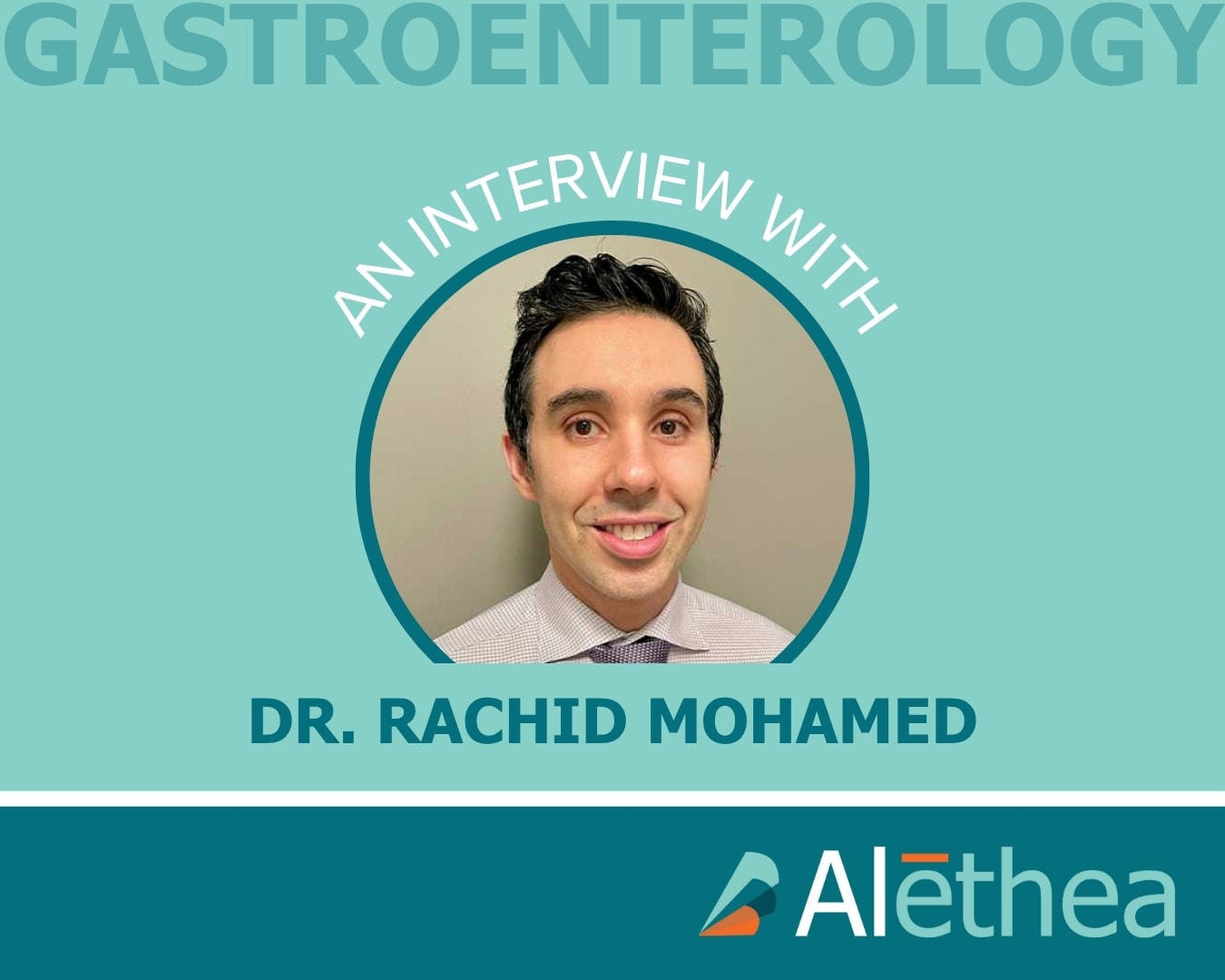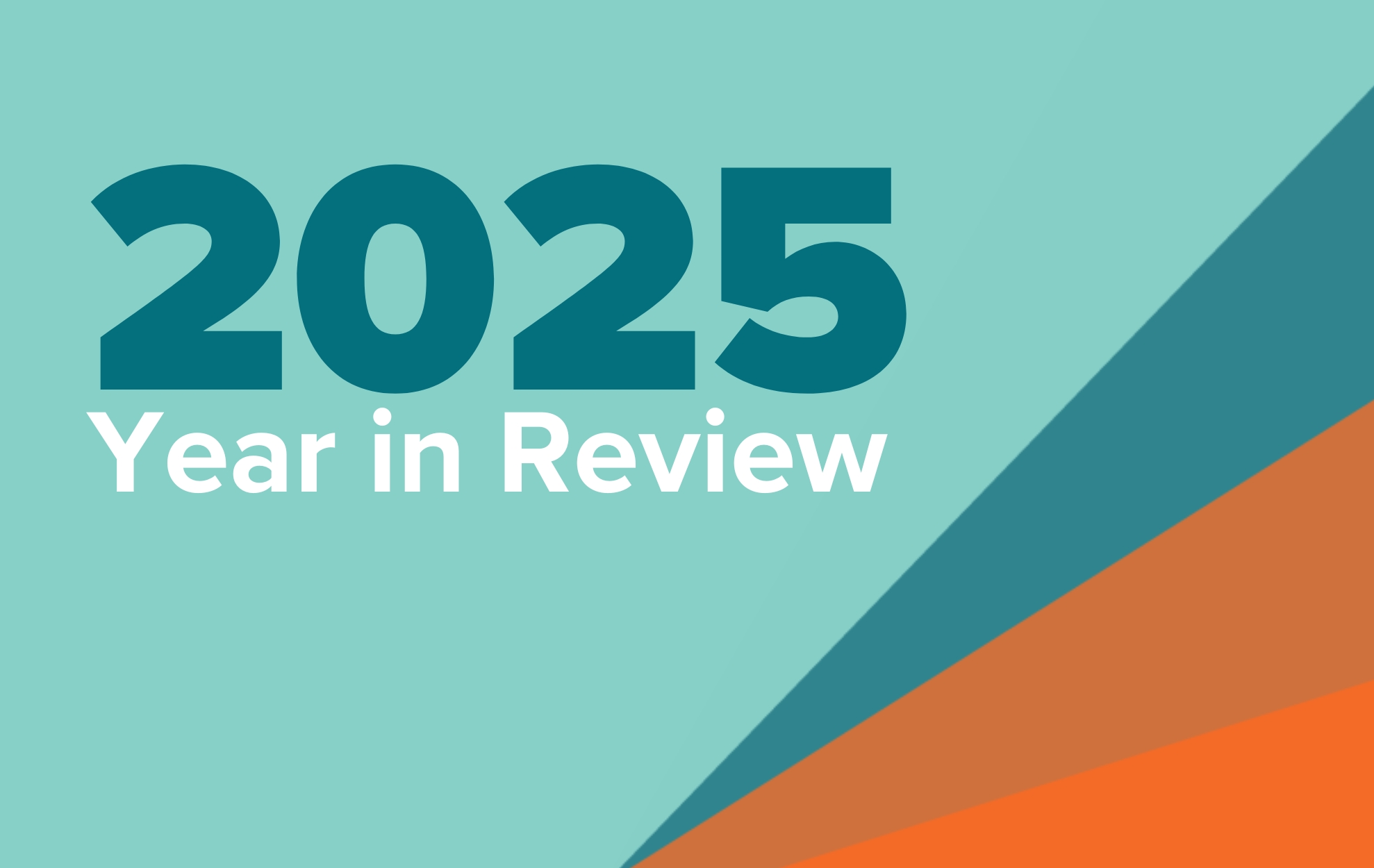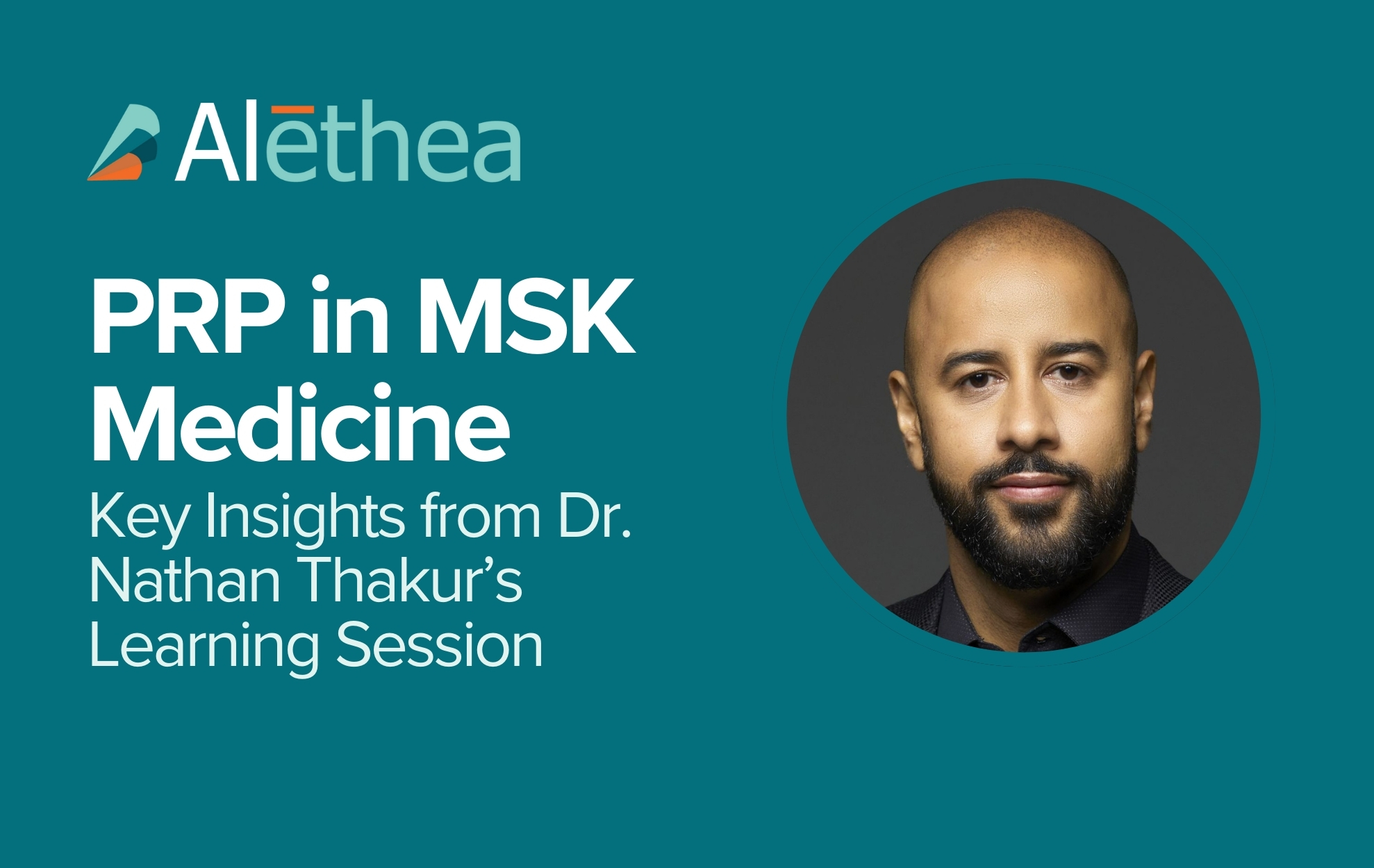Enhancing Gastroenterology Access: A Conversation with Dr. Rachid Mohamed

Specialist access in gastroenterology can be a major challenge for patients and primary care providers alike. Long wait times, limited availability, and cumbersome referral processes often delay care and frustrate patients and providers. At Alethea, our mission is to bridge this gap by enabling seamless collaboration between primary care physicians (PCPs) and specialists.
In a recent interview, we spoke with Dr. Rachid Mohamed, a Calgary-based gastroenterologist with over 15 years of experience, about his clinical practice, his use of Alethea, and how the platform is transforming care delivery.
Dr. Mohamed’s Background
Dr. Mohamed specializes in pancreatic and biliary medicine as well as tissue resection, while also practicing across the full spectrum of gastroenterology. Over the course of his career, he has seen firsthand the barriers patients face in accessing timely care.
This perspective made him particularly interested in Alethea’s model. Unlike traditional referral systems or other consultation platforms, Dr. Mohamed finds Alethea far more practical:
“With Alethea, I found it was something I could do more manageably throughout my day. The questions are reasonable, focused, and allow me to provide pointed guidance and insight without disrupting my workflow.”
How Alethea Fits into His Workflow
One of the key advantages Dr. Mohamed highlights is flexibility. Because Alethea is asynchronous, specialists can respond at times that fit their schedules, whether between patients, during downtime in procedures, or at the end of the day.
“I’ve never really found it to interfere with the workflow of my day. I typically try to turn consults around within the same day, because I know my colleagues are waiting for answers to guide patient care.”
This balance of responsiveness and flexibility ensures PCPs receive timely, practical input without overburdening specialists.
Common Consults in Gastroenterology
Dr. Mohamed receives a wide range of consults from PCPs, reflecting both the breadth of gastroenterology and the uncertainty many family physicians face in managing complex GI presentations.
Typical consults include:
- Interpreting imaging findings (e.g., incidental abnormalities)
- Guidance on managing reflux, diarrhea, or abdominal pain
- Clarifying next steps for hepatology-related concerns
- Input on when to escalate care or order further investigations
By providing this targeted advice, Dr. Mohamed helps PCPs manage more patients in primary care settings while ensuring appropriate cases are escalated.
Impact on Patient Care
While Dr. Mohamed doesn’t interact directly with patients through Alethea, he sees a clear benefit to their care. Timely specialist input gives PCPs confidence in their management plans and reduces unnecessary referrals.
“I think I’m empowering the primary care practitioner to say, ‘the treatment plan I’ve established for you has been reviewed with a specialist.’ That strengthens the therapeutic relationship and reassures patients that they’re receiving evidence-based care.”
This collaborative approach not only builds trust between providers and patients but also helps to reduce waitlists and streamline the healthcare system.
Dr. Mohamed expressed his appreciation for Alethea’s structure and the value it brings to both specialists and primary care providers:
“Thank you to Alethea for the format you’ve developed and the hard work you continue to put into making this a meaningful and fruitful relationship between us and primary care practitioners.”
Key Takeaways
- Flexible workflow: Specialists can respond to eConsults at their convenience without disrupting daily practice.
- Wide range of consults: PCPs use Alethea for GI concerns ranging from abdominal pain to interpreting imaging results.
- Improved patient care: Patients benefit from timely, specialist-supported management at the primary care level.
- Stronger PCP-patient relationships: Specialists support family doctors in delivering reassurance and evidence-based plans.
Alethea continues to expand its network of specialists like Dr. Mohamed, empowering primary care providers with faster access to expertise across disciplines. Watch the complete interview recording here.
Sign up for Alethea today to access specialists across gastroenterology and 40+ other specialties.







